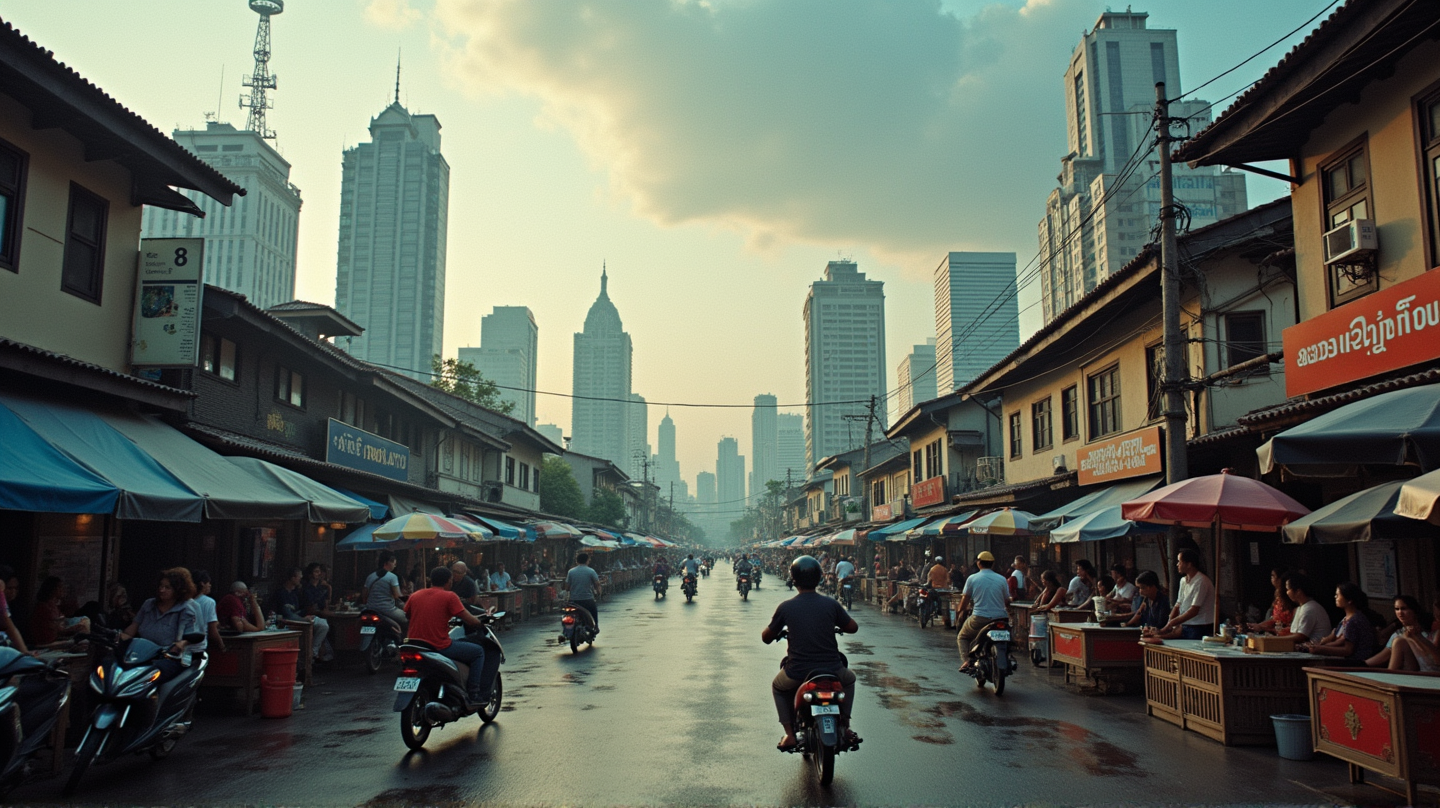Navigating Thailand's Economic Turmoil Amid Political Chaos
As political unrest shakes Thailand, economic instability looms with investor confidence plunging and trade discussions in jeopardy.

Thailand is currently grappling with significant political unrest due to the Constitutional Court’s suspension of Prime Minister Paetongtarn Shinawatra. This domestic political friction is showing worrying signs on the international stage, penetrating deeper into economic dimensions and shaking the confidence of investors and international trade partners alike.
Investor Dilemma: The Shadow of Uncertainty
In a country where political stability is tightly woven with economic agility, the current crisis has prompted a confidence crisis among both local and international investors. Hesitations are mounting, particularly in projects heavily reliant on government investments such as large-scale infrastructure developments. The continuous tide of political instability leaves investors wary of new commitments, potentially stunting sectors like construction that significantly contribute to the nation’s GDP.
Policy Bottleneck: An Impending Economic Standstill
Despite the government’s functionality, the looming political uncertainty threatens the imminent future of Thailand’s economic policy implementations. A delay in the 2026 budget process due to possible parliamentary dissolution could severely affect economic growth forecasts, particularly from late 2024 through mid-2025. The window for ample governmental economic stimuli may close as consumer confidence wanes, further burdening the fragile economic landscape.
International Trade: The High Stakes Game with the U.S.
Thailand’s political instability might not be isolated; in fact, it could serve as a leverage point during ongoing negotiations with the U.S. on imports and tariffs. While trade talks continue, there lurks the possibility that the U.S. will use Thailand’s political situation as a pawn in broader geopolitical negotiations, possibly influencing tariff decisions that could be economically detrimental to Thailand.
Forecasts and Fears: Economic Prognosis
Economists paint a less-than-rosy picture for Thailand’s economic future. Lower GDP growth is anticipated, tethered tightly to political volatility and expected shifts in international trade policies. Domestic political challenges compound with external pressures like ongoing trade restrictions with Cambodia, triggering a perfect storm of economic difficulties.
Solutions on the Horizon: A Call for Immediate Action
The dissolution of Parliament and subsequent elections are floated as potential remedies for restoring stability. However, there are concerns that these actions could merely reset the cycle of instability. There is a need for clear leadership transition plans and consolidated economic strategies to dissipate uncertainty and propel the economy forward.
As stated in Thailand Business News, the suspension of Prime Minister Paetongtarn Shinawatra acts as a critical juncture in Thailand’s economic forecast, urging for substantial political and economic strategies to navigate through the stormy waters of uncertainty.
Whether Thailand can weather this economic storm relies significantly on its ability to address underlying political instability, fortify investor confidence, and maintain robust international trade relationships.





